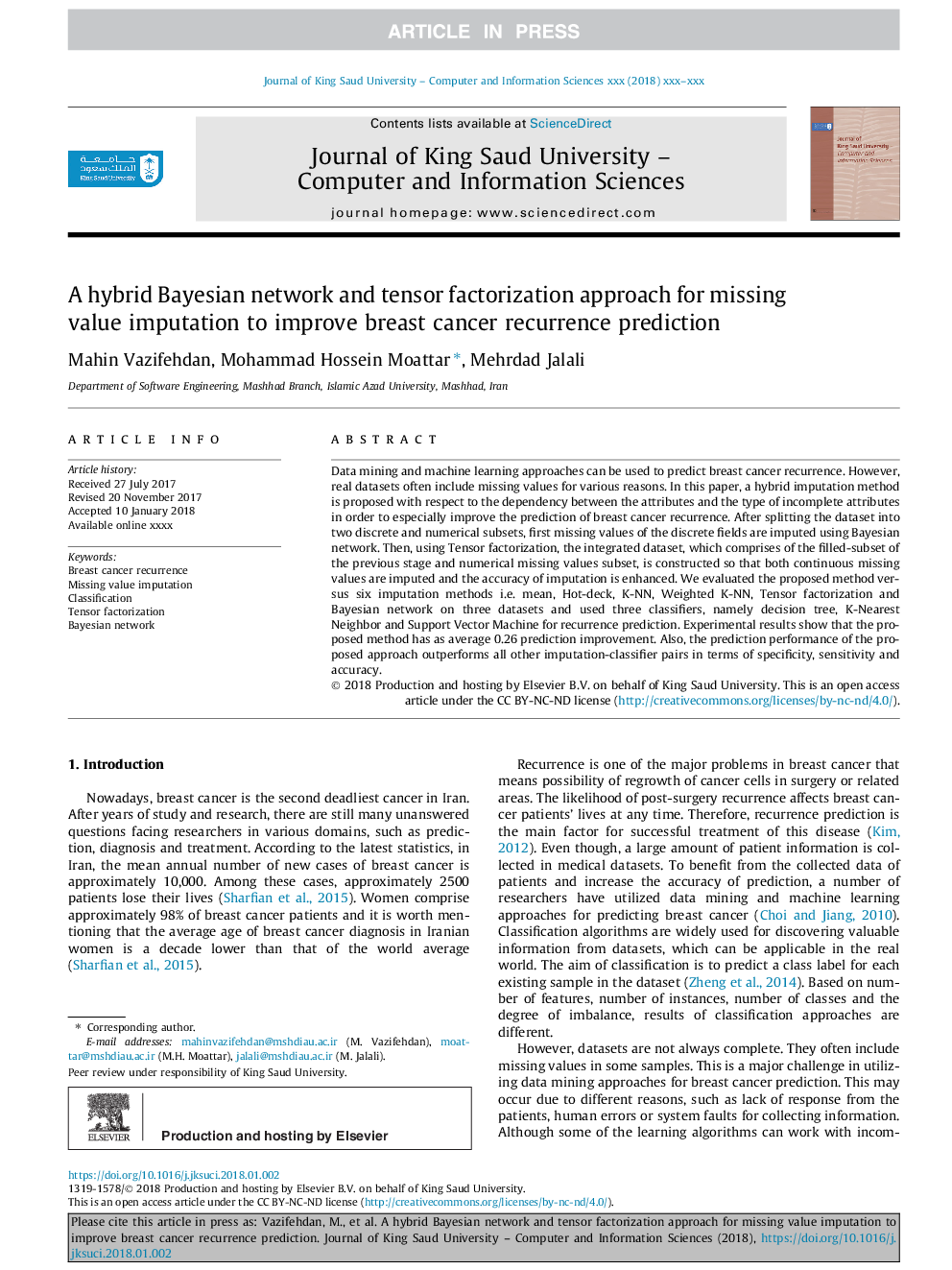ترجمه فارسی عنوان مقاله
یک شبکه ترکیبی بیزی و رویکرد فازی سازی تانسور برای تعویض ارزش گمشده برای پیشگیری از تکرار سرطان پستان
عنوان انگلیسی
A hybrid Bayesian network and tensor factorization approach for missing value imputation to improve breast cancer recurrence prediction
| کد مقاله | سال انتشار | تعداد صفحات مقاله انگلیسی |
|---|---|---|
| 113821 | 2018 | 10 صفحه PDF |
منبع

Publisher : Elsevier - Science Direct (الزویر - ساینس دایرکت)
Journal : Journal of King Saud University - Computer and Information Sciences, Available online 13 January 2018
ترجمه کلمات کلیدی
عود سرطان پستان، فقدان ارزشگذاری، طبقه بندی، تخمین تانسور، شبکه بیزی،
کلمات کلیدی انگلیسی
Breast cancer recurrence; Missing value imputation; Classification; Tensor factorization; Bayesian network;

